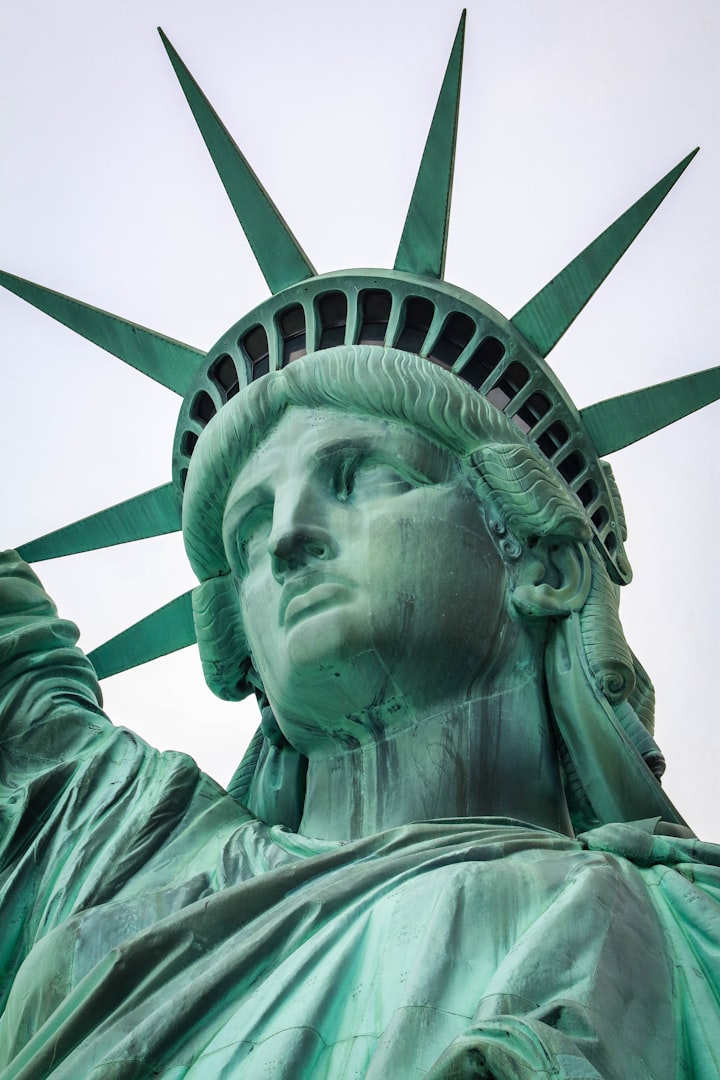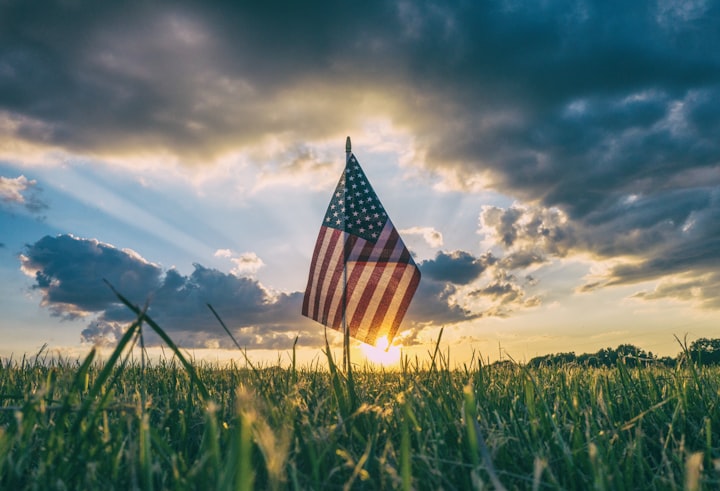Libertarianism: Unleashing the Power of Individual Freedom
Embracing individual liberty.

One philosophy has been making waves in the ever-evolving political landscape: libertarianism. It's a philosophy that champions individual liberty above all else, advocating for limited government interference and the protection of personal freedoms. In this article, we will delve into the core of libertarianism and explore its historical roots and the core principles that shape its ideology.
Embracing Individual Liberty
At the core of libertarianism resides a deep-seated appreciation and respect for individual liberty. It is a belief system passionately held by its adherents, who firmly assert that every individual possesses an innate and fundamental right to lead their life according to their own volition, free from excessive external intervention. This foundational principle of libertarianism transcends all spheres of existence, encompassing economic, social, and personal domains.
Libertarians ardently advocate that individuals should be free to make choices and decisions that align with their values, aspirations, and desires. They emphasize the intrinsic worth of personal autonomy and self-determination, contending that human existence should be safeguarded and celebrated. From their perspective, the role of any governing authority should be limited, allowing individuals to exercise their autonomy without unnecessary restraints.
Economically, libertarians champion the idea of free markets and minimal government intervention. They contend that individuals should have the right to engage in voluntary transactions and exchanges without undue restrictions, fostering an environment of economic freedom and innovation. They argue that free competition and the absence of excessive regulations enable individuals to pursue their economic interests, generate wealth, and fulfill their aspirations without unnecessary impediments.
The third-party advocates for social freedom and non-interference in personal choices. They champion the view that consenting adults should be able to engage in activities that do not harm others (no victim, no crime), even if they are considered unconventional or non-traditional. This includes personal relationships, lifestyle choices, and individual expressions of identity. Libertarians argue that a diverse and pluralistic society is best nurtured when individuals can pursue their values and preferences, free from imposed societal norms or moral judgments.
In essence, libertarianism emphasizes the principle of individual liberty as the cornerstone of a just and prosperous society. It asserts that every person possesses inherent rights that should be respected and protected, enabling them to lead fulfilling lives according to their convictions. By championing this profound reverence for individual freedom across economic, social, and personal dimensions, we aim to create a society that maximizes individual potential, fosters voluntary cooperation, and upholds the dignity of each person.
A Case for Limited Government and Individual Rights
In political philosophy, few ideologies embrace the principles of limited government and individual liberty as passionately as libertarianism. Central to the libertarian doctrine is the firm belief that a smaller state, one with confined powers, is vital for safeguarding the rights and freedoms of its citizens. With this in mind, libertarians emphasize the significance of individual rights - such as freedom of speech, expression, and association - which they regard not as privileges bestowed by the government but as inherent rights intrinsic to human nature.
The core principle of limited government championed by libertarians stems from the concern that an overreaching state can threaten individuals' autonomy and well-being. By advocating for a smaller government, libertarians seek to curb the potential for governmental encroachment into various aspects of people's lives. We argue that a restrained state is less likely to infringe upon the fundamental liberties that individuals inherently possess.
Libertarians contend that rights, including freedom of speech, expression, and association, do not originate from any governing authority. Instead, they assert that these rights are natural and pre-existing, inherent to human beings by their existence. In this view, the government's role is not to grant or create these rights but instead to recognize and protect them. Libertarians see the government as a mere custodian of these individual liberties, ensuring they are not violated or suppressed.
As part of the broader discussion on individual rights, the Second Amendment of the United States Constitution often finds itself intertwined with libertarian principles. The Second Amendment states: "A well-regulated Militia, being necessary to the security of a free State, the right of the people to keep and bear Arms, shall not be infringed." For many libertarians, the Second Amendment safeguards against potential government overreach. They argue that an armed citizenry is a deterrent against tyranny, allowing individuals to protect their life, liberty, and property from criminal threats and the potential abuse of power by the state.
However, it is essential to note that libertarian perspectives on the Second Amendment can vary. While some libertarians advocate for minimal restrictions on gun ownership, others may support specific regulations, such as background checks, to ensure public safety without unduly impeding the right to bear arms. Nevertheless, the common thread among libertarians is the recognition of the Second Amendment as a means for individuals to exercise their natural right to self-defense and resistance against oppressive forces, be it criminal or governmental.
We uphold limited government as a vital component for preserving the rights and freedoms of individuals. Libertarians emphasize that individual rights, such as freedom of speech, expression, and association, are inherent to all people and should not be subject to governmental control. The Second Amendment often resonates with libertarian principles, as it safeguards against potential encroachments on personal liberties. By recognizing the importance of limited government and preserving individual rights, libertarians strive to create a society prioritizing individual freedom and autonomy.
The Power of Free Markets and Economic Freedom
Libertarians passionately advocate for the principles of free markets, firmly believing in the power of voluntary transactions and limited government involvement in economic affairs. We ardently argue that when individuals are given the freedom to engage in open and unrestricted trade, it ultimately results in the most effective distribution of resources and the promotion of overall prosperity within society.
At the core of libertarian ideology is the conviction that unfettered competition, driven by the choices made by individuals in the market, is the key to unlocking economic success. We maintain that when buyers and sellers engage in voluntary exchanges driven by self-interest, a system emerges that maximizes efficiency, innovation, and productivity. This, in turn, leads to increased living standards and a higher quality of life for individuals and communities.
Libertarians view government regulations, price controls, and other forms of intervention as significant barriers to economic freedom. We argue that such interventions hinder the natural workings of the market by distorting prices, stifling competition, and impeding the flow of goods and services. Instead, we champion a hands-off approach, advocating for removing unnecessary regulations and bureaucratic red tape obstructing the free market's ability to function optimally.
By minimizing government intervention, libertarians believe that individuals can exercise their inherent right to make choices freely and take responsibility for the consequences of those choices. We contend that limiting the state's power in economic matters fosters an environment of personal liberty, self-reliance, and individual autonomy. This is beneficial for economic growth and safeguarding fundamental civil liberties.
Critics of libertarianism often raise concerns about potential negative externalities, market failures, and the potential for inequality to arise from unregulated markets. However, libertarians maintain that many of these issues can be addressed through mechanisms such as tort law, private arbitration, and voluntary associations without heavy-handed government intervention.
Overall, libertarians passionately defend the principles of free markets and minimal government interference in the economy. By championing individual freedom, removing unnecessary regulations, and allowing the market to operate naturally, society can experience the benefits of enhanced economic efficiency, prosperity, and personal liberty.
Safeguarding Personal Freedom and Civil Liberties
Regarding personal freedom, libertarians passionately argue for a broad spectrum of individual liberties. Their ideology promotes the idea that people should have the right to exercise their freedom as long as their choices do not cause harm to others. This means that libertarians advocate decriminalizing consensual activities, focusing on issues such as drug use, sexual orientation, and bodily autonomy.
One of the critical principles of libertarianism is the belief in personal sovereignty. We firmly hold that individuals should have the autonomy to make decisions regarding their bodies and lifestyles without undue interference from the government or any other external authority. As long as these choices do not violate the rights of others or cause harm to society, they should be entirely permissible.
When it comes to drug use, libertarians argue for the decriminalization of substances that are used consensually and do not pose a direct threat to others. We believe that the government should not dictate what individuals can or cannot put into their bodies and that drug use should be treated as personal responsibility rather than criminality. By advocating for decriminalization, we aim to shift the focus from punishment to harm reduction, emphasizing education, treatment, and voluntary rehabilitation.
Regarding sexual orientation, libertarians firmly support the idea that individuals should be free to express their sexual preferences and engage in consensual relationships without interference or discrimination. We reject the notion that the government should have any say in whom people love or how they choose to express their sexuality. We also argue that such personal choices should be entirely up to the individuals involved as long as they are consensual and do not infringe upon the rights of others.
Us libertarians champion a wide range of individual liberties regarding personal freedom. We argue for decriminalizing consensual activities that do not harm others, such as drug use, sexual orientation, and bodily autonomy. Libertarians firmly believe in the importance of personal sovereignty and assert that individuals should have the freedom to make choices about their own bodies and lifestyles as long as their actions do not infringe upon the rights of others.
In Conclusion
Libertarianism offers a compelling perspective on the role of government and the importance of individual liberty in shaping society. Its emphasis on limited government, free markets, and individual rights has garnered a growing following in recent years. However, like any political philosophy, libertarianism is not without its complexities and challenges. Striking a delicate balance between individual freedom and collective welfare remains an ongoing debate, and implementing libertarian ideals in practice requires thoughtful consideration of real-world complexities.
As discussions on the role of government and the scope of individual liberty persist, the ideas and principles put forth by libertarians contribute to a broader discourse on how societies can best promote personal freedom while also addressing the common good.
Thanks for reading!
About the Creator
Christopher Harvey
I’m a long-time writer and musician. I love telling stories and writing poetry.






Comments
There are no comments for this story
Be the first to respond and start the conversation.